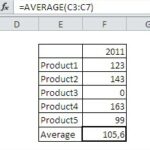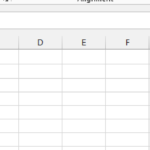How to Use VLOOKUP with Pivot Tables
VLOOKUP is a powerful Excel function that allows you to search for a specific value in a table and retrieve data from that table. When you’re working with pivot tables, VLOOKUP can be a useful tool to extract specific information from your summarized data.
In this guide, we’ll explore how to use VLOOKUP with pivot tables in Excel.
Understanding Pivot Tables
Pivot tables are a feature in Excel that allows you to summarize and analyze large datasets. They enable you to group, filter, and calculate data easily, providing a more concise view of your information.
Pivot tables consist of rows, columns, and values, and you can use them to create reports and summaries from your data.
Using VLOOKUP with Pivot Tables
Here’s how you can use VLOOKUP with pivot tables in Excel:
Step 1: Create a Pivot Table
- Select the data range that you want to create a pivot table from.
- Go to the “Insert” tab and click “PivotTable”. This will open the “Create PivotTable” dialog.
- Ensure the selected range is correct and choose where you want to place the pivot table (a new worksheet or an existing one).
- Click “OK” to create the pivot table.
Step 2: Identify the Data to Retrieve
Determine which data you want to retrieve using VLOOKUP. This could be a specific value, such as a total or a specific cell within the pivot table.
Step 3: Use VLOOKUP
Now, you can use the VLOOKUP function to retrieve data from the pivot table:
=VLOOKUP(lookup_value, table_array, col_index_num, [range_lookup])
- lookup_value: The value you want to look up or reference.
- table_array: The range of your pivot table, including the column containing the lookup_value and the column containing the data you want to retrieve.
- col_index_num: The column number (counting from 1) in the table_array from which you want to retrieve data.
- range_lookup: This is an optional argument. If you want an exact match, use “FALSE” or “0”. If you want an approximate match, use “TRUE” or “1”.
Step 4: Example
For example, if you want to retrieve the total sales for a specific product from your pivot table:
=VLOOKUP(“Product Name”, pivot_table_range, 2, 0)
Where “Product Name” is the value you’re looking for, “pivot_table_range” is the range of your pivot table, and “2” is the column number in the pivot table that contains the total sales data. Use “0” for an exact match.



